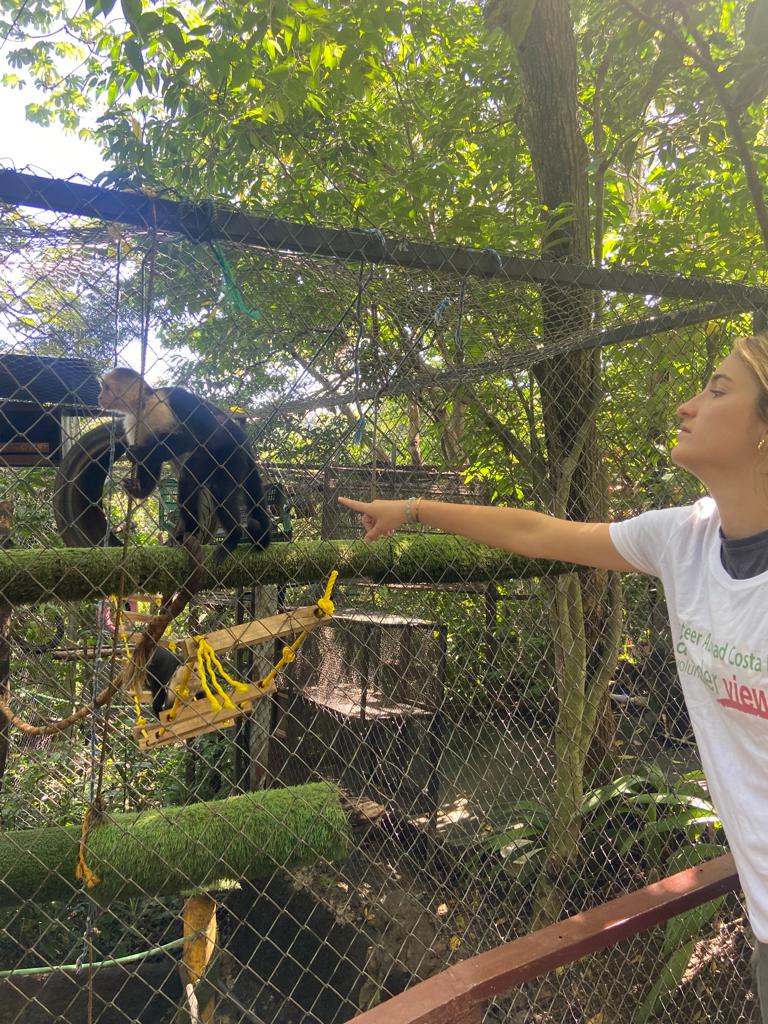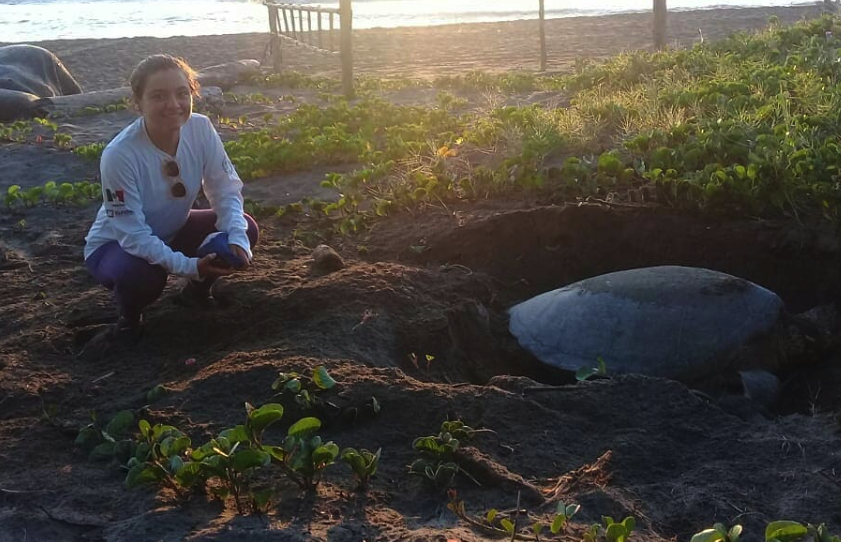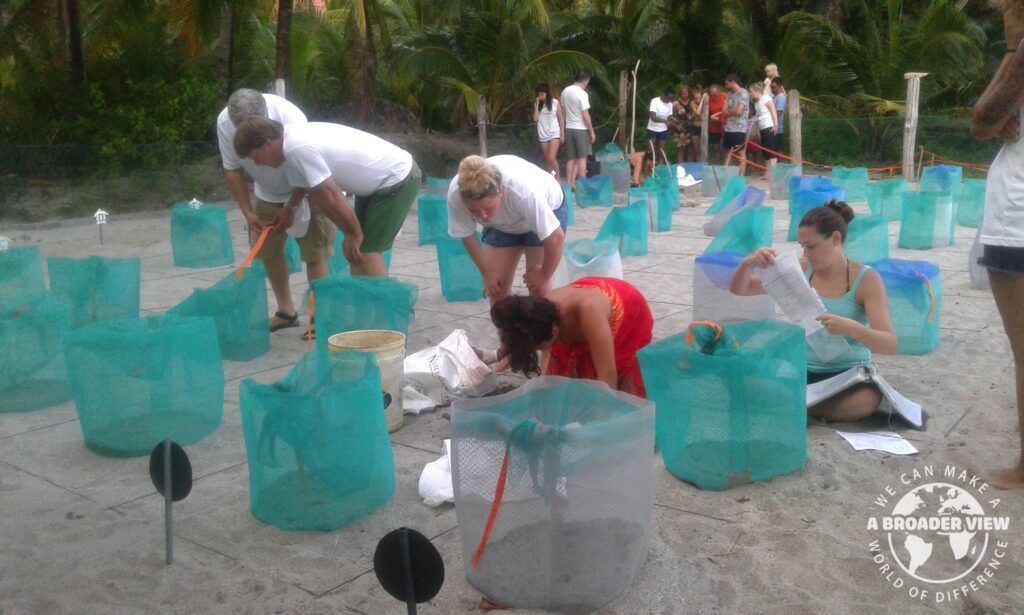Climate change is a pressing issue that affects us all. Rising temperatures, extreme weather events, and environmental degradation are some of the consequences of this global phenomenon. As individuals, it can be easy to feel powerless in the face of such a massive challenge. However, there is a way for each of us to make a difference and contribute to combating climate change: volunteering in environmental initiatives.
By dedicating our time and skills to environmental causes, we can actively participate in the fight against climate change and create positive change in our communities. Volunteering not only helps protect and restore the environment but also offers a host of personal benefits, including skill development, self-reflection, and building connections with like-minded individuals.

In this article, we will explore the impacts of climate change, the importance of volunteering, different types of environmental initiatives, ways to find volunteer opportunities, tips for preparing for volunteering, how to make a difference as a volunteer, and the personal growth and benefits that come with volunteering in environmental initiatives. So let’s dive in and discover how we can take action against climate change through volunteering!
Understanding the Impacts of Climate Change
Climate change is an urgent issue that affects the entire planet. It is crucial to understand the impacts of climate change in order to take effective action. By exploring the causes of climate change and examining its effects on ecosystems and communities, we can gain a deeper understanding of the problem and find solutions to mitigate its impact.
Exploring the Causes of Climate Change
Climate change is primarily caused by the increase in greenhouse gases in the atmosphere, mainly due to human activities such as burning fossil fuels, deforestation, and industrial processes. These activities release large amounts of carbon dioxide, methane, and other greenhouse gases that trap heat and contribute to global warming.

The burning of fossil fuels for transportation, electricity, and heat is the largest source of greenhouse gas emissions. Deforestation, on the other hand, contributes to climate change by reducing the Earth’s capacity to absorb carbon dioxide.
Examining the Effects on Ecosystems and Communities
The effects of climate change are far-reaching and varied, impacting ecosystems and communities around the world. Some of the major effects include:
- Rising temperatures: Global warming leads to increased temperatures, which can disrupt ecosystems and cause extreme weather events such as heatwaves and droughts.
- Melting ice caps and rising sea levels: The melting of ice caps and glaciers contributes to rising sea levels, posing a threat to coastal communities and low-lying islands.
- Changes in precipitation patterns: Climate change alters rainfall patterns, leading to more frequent and intense storms, floods, and droughts in different regions.
- Loss of biodiversity: Rising temperatures and changing weather patterns can disrupt ecosystems, leading to the loss of plant and animal species.
- Negative impacts on human health: Climate change affects human health through increased heat-related illnesses, the spread of diseases, and reduced access to clean water and food.
Understanding the impacts of climate change is essential to drive action and find effective solutions. It highlights the need for increased efforts in reducing greenhouse gas emissions, promoting renewable energy, and implementing sustainable practices in various sectors.
“Climate change does not respect border; it does not respect who you are – rich and poor, small and big. Therefore, this is what we call ‘global challenges,’ which require global solidarity.” – Ban Ki-moon
In the next section, we will explore the importance of volunteering in environmental initiatives and how it can contribute to creating positive change.
The Importance of Volunteering
Volunteering is a powerful way to make a positive impact on the world. When it comes to addressing the urgent issue of climate change, volunteering in environmental initiatives is more critical than ever. By dedicating your time, knowledge, and energy to these causes, you can contribute to the collective effort of creating a sustainable and thriving planet for future generations. Volunteering not only benefits the environment but also offers numerous personal and professional rewards. Let’s explore why volunteering in environmental initiatives is of utmost importance.
Creating Positive Change Through Volunteering
Volunteering in environmental initiatives allows you to actively participate in addressing climate change and its consequences. By joining forces with like-minded individuals and organizations, you become part of a larger movement working towards a sustainable future. Through your actions, you can help protect and restore ecosystems, conserve natural resources, promote renewable energy, and advocate for responsible environmental practices.
Benefits of Volunteering for the Environment
Beyond making a difference in the fight against climate change, volunteering offers many personal benefits. Here are a few reasons why getting involved in environmental initiatives is worth your time:
- Sense of Purpose: Volunteering gives you a sense of purpose and fulfillment by knowing that you are contributing to something greater than yourself.
- Connection to Nature: Spending time in nature through volunteer work allows you to develop a deeper appreciation for the environment and strengthens your connection to the natural world.
- Personal Growth: Volunteering provides opportunities for personal growth by developing new skills, gaining experience, and expanding your knowledge about sustainability and environmental issues.
- Community Engagement: Volunteering connects you with a diverse community of individuals who share your passion for environmental conservation. This can lead to meaningful relationships and networking opportunities.
- Mental and Physical Well-being: Engaging in environmental volunteer activities can improve your mental and physical well-being. Spending time outdoors, being active, and doing meaningful work are all beneficial for your overall health.
Volunteering in environmental initiatives is not only important for the environment but also for personal growth and well-being. By dedicating your time and energy, you can make a tangible difference while also reaping the benefits of a rewarding experience.

“Volunteering is the ultimate exercise in democracy. You vote in elections once a year, but when you volunteer, you vote every day about the kind of community you want to live in.” – Marjorie Moore
Now that we understand the importance of volunteering in environmental initiatives, let’s explore the different types of environmental initiatives you can get involved in.
Different Types of Environmental Initiatives
When it comes to volunteering in environmental initiatives, there are a variety of options available to choose from. Whether you’re interested in conservation, sustainable agriculture, or renewable energy, there is a role for everyone to play in protecting our planet. Here are some different types of environmental initiatives you can get involved in:
Conservation and Restoration Projects
Conservation projects focus on protecting and preserving natural habitats and biodiversity. These initiatives often involve activities such as reforesting areas, removing invasive species, and maintaining trails. By volunteering in conservation projects, you can help restore ecosystems, prevent habitat loss, and conserve endangered species.
Sustainable Agriculture Initiatives
Sustainable agriculture initiatives aim to promote environmentally friendly farming practices that minimize the impact on the planet. Volunteering in these initiatives can involve activities such as organic farming, permaculture, and community gardening. By supporting sustainable agriculture, you can contribute to food security, reduce greenhouse gas emissions, and support local communities.
Renewable Energy Campaigns
Renewable energy campaigns focus on promoting and advocating for clean and sustainable energy sources. Volunteering in these initiatives can involve activities such as raising awareness about the benefits of renewable energy, organizing events, and advocating for renewable energy policies. By getting involved in renewable energy campaigns, you can help combat climate change and promote a transition to a more sustainable future.
As you can see, there are plenty of options when it comes to choosing which environmental initiative to volunteer for. Each initiative plays a vital role in protecting our planet and creating a sustainable future. It’s important to find an initiative that aligns with your interests and passions to make the most impact as a volunteer.
Finding Volunteer Opportunities
If you’re passionate about environmental issues and want to make a difference, volunteering in environmental initiatives is a great way to take action against climate change. There are numerous opportunities available for individuals who want to contribute their time and skills to help protect the planet. In this section, we will explore different avenues for finding volunteer opportunities that align with your interests and goals.
Local Environmental Organizations
One of the best places to start your search for volunteer opportunities is within your local community. Many cities and towns have environmental organizations that work on various projects to conserve natural resources, promote sustainability, and raise awareness about climate change. These organizations often rely on volunteers to assist with their initiatives.

National and International Programs
If you have the time and resources to travel, there are national and international programs that offer volunteer opportunities in environmental conservation and sustainability. These programs may involve working on projects such as reforestation efforts, wildlife conservation, or sustainable farming practices in different parts of the world. Participating in these programs not only allows you to contribute to global environmental efforts but also gives you the opportunity to experience different cultures and learn from local communities.
Online Platforms for Volunteer Opportunities
In today’s digital age, there are numerous online platforms that connect volunteers with environmental organizations and initiatives. These platforms make it easier for individuals to find volunteer opportunities that match their interests and availability. Some popular platforms include:
- VolunteerMatch: This online platform allows you to search for volunteer opportunities based on your location and interests. You can find a wide range of environmental initiatives to get involved in.
- United Nations Volunteers: The United Nations Volunteers program offers various volunteer opportunities globally, including environmental and climate action projects.
- Idealist: Idealist is a platform that connects individuals with volunteer opportunities, jobs, and internships in the nonprofit sector. They have a dedicated section for environmental volunteer opportunities.
These online platforms not only provide a convenient way to find volunteer opportunities but also offer additional resources and information about the organizations and projects you are interested in.
Now that you know where to find volunteer opportunities in environmental initiatives, let’s explore how you can prepare yourself for volunteering to ensure a productive and meaningful experience.
Preparing for Volunteering
Preparing for volunteering in environmental initiatives is an important step to ensure that you can make the most impact and contribute effectively to the cause. It’s crucial to understand the specific requirements of the project, gather the necessary skills and knowledge, and prioritize safety and health measures. Here are some key points to consider when preparing for your volunteer experience:
Understanding the Specific Project Requirements
Before embarking on a volunteering project, it’s essential to have a clear understanding of the goals and objectives of the initiative. Familiarize yourself with the specific requirements and tasks involved in the project. This will help you align your skills and interests with the needs of the project, ensuring that you can contribute effectively. Some key questions to consider are:
- What is the duration of the project?
- What are the specific roles and responsibilities?
- Are there any specific skills or qualifications required?
- What are the project’s logistical requirements, such as accommodation and transportation?
By understanding the project requirements, you can better prepare yourself mentally and physically for the volunteering experience.

Gathering the Necessary Skills and Knowledge
To be an effective volunteer, it’s essential to acquire the necessary skills and knowledge related to the environmental initiative you will be working on. This could involve learning about conservation techniques, sustainable farming practices, or renewable energy solutions. Here are some ways to gather the required skills and knowledge:
- Attend workshops or training sessions: Many environmental organizations offer workshops or training programs to educate volunteers on specific topics. Take advantage of these opportunities to increase your knowledge and develop new skills.
- Online resources: The internet is a vast source of information. Look for online courses, webinars, or tutorials that can help you gain the necessary knowledge about the issues you’ll be addressing during your volunteer work.
- Connect with experts: Reach out to experts in the field and engage with them to gain insights and advice. They can provide valuable guidance and help you better prepare for your volunteer role.
By investing time in acquiring the necessary skills and knowledge, you’ll be better equipped to contribute effectively to the environmental initiative.
Ensuring Safety and Health Measures
Volunteering in environmental initiatives often involves working in physically demanding or hazardous environments. Safety should always be a top priority. Here are some steps you can take to ensure your safety:
- Research and understand the potential risks associated with your volunteer work. This could include exposure to chemicals, working at heights, or operating machinery.
- Follow all safety guidelines provided by the organization or project leaders. This may include wearing protective gear, attending safety briefings, or undergoing specific training.
- Prioritize your physical and mental well-being. Stay hydrated, take breaks when necessary, and listen to your body.
The safety and health measures in place are designed to protect you and ensure a successful volunteer experience. If you have any concerns about safety, don’t hesitate to communicate them with the project leaders or coordinators.

Remember, preparation is key to a successful and fulfilling volunteer experience. By understanding the project requirements, gathering the necessary skills and knowledge, and prioritizing safety and health measures, you can make a significant and positive impact in your role as a volunteer.
Making a Difference as a Volunteer
As a volunteer in environmental initiatives, you have the power to make a real difference in the fight against climate change. Your contribution, no matter how big or small, can have a positive impact on the planet and the communities that rely on it. Here are some ways in which you can make a difference:
Working as a Team
Volunteering in environmental initiatives often involves working with a team of like-minded individuals who share a common goal. By collaborating and pooling your skills and resources, you can achieve far more than you could on your own. Whether you’re planting trees, cleaning up beaches, or advocating for renewable energy, the power of teamwork can amplify your efforts and create lasting change.
Implementing Sustainable Practices
One of the key ways in which volunteers contribute to environmental initiatives is by promoting and implementing sustainable practices. This can include recycling, reducing waste, conserving water and energy, and adopting eco-friendly habits. By incorporating these practices into your daily life and encouraging others to do the same, you are taking concrete steps towards mitigating climate change and preserving the planet for future generations.
Educating and Raising Awareness
Another important role that volunteers play is in educating and raising awareness about climate change and environmental issues. By providing information, organizing workshops, and engaging in meaningful conversations, you can help others understand the urgency of the situation and inspire them to take action. Through your advocacy efforts, you can create a ripple effect of positive change, empowering individuals and communities to make more sustainable choices.
“The greatest threat to our planet is the belief that someone else will save it.” – Robert Swan
Your commitment as a volunteer can inspire others to get involved and take responsibility for the health of the planet. Every interaction, whether it’s through social media, community events, or educational initiatives, has the potential to foster a sense of collective responsibility and drive positive change.
Personal Growth and Benefits
Volunteering in environmental initiatives not only allows you to contribute to the fight against climate change but also offers numerous personal growth and benefits. Let’s explore how getting involved in these initiatives can help you develop new skills, enhance your resume, and foster personal connections.
Skill Development and Enhancing Your Resume
Volunteering in environmental initiatives provides a unique platform for skill development and can help you acquire valuable abilities that are sought after by employers. Here are some ways in which volunteering can enhance your skill set:
- Leadership: Environmental initiatives often involve teamwork and coordination. By taking on leadership roles within these projects, you can develop your leadership skills, including decision-making, problem-solving, and effective communication.
- Project Management: Many environmental initiatives require careful planning, organization, and execution. By volunteering in such projects, you can gain experience in project management, including setting goals, creating timelines, delegating tasks, and monitoring progress.
- Environmental Knowledge: Engaging in environmental initiatives allows you to deepen your knowledge of various ecological systems, conservation practices, and sustainable solutions. This knowledge can be an asset in environmental-related careers or when advocating for sustainable practices in your community.
- Adaptability: Environmental initiatives often involve working in diverse environments and facing unexpected challenges. By volunteering in these initiatives, you can enhance your adaptability, resilience, and ability to thrive in different situations.
These skills acquired through volunteering can significantly enhance your resume and make you stand out to potential employers. They demonstrate your commitment, passion, and ability to work effectively in a team.

Self-Reflection and Building Connections
Volunteering in environmental initiatives also offers opportunities for self-reflection, personal growth, and building connections with like-minded individuals. Here are some ways in which volunteering can benefit you personally:
- Self-Awareness: Volunteering allows you to discover your own values, interests, and passions related to the environment. It gives you the chance to reflect on the issues that matter most to you and develop a deeper understanding of your personal connection with nature.
- Sense of Purpose: Contributing to environmental initiatives can give you a sense of purpose and fulfillment. Knowing that you are making a positive impact on the environment and the community can boost your self-esteem and overall well-being.
- Networking: Volunteering provides the opportunity to connect with individuals who share similar interests and values. These connections can lead to new friendships, mentorship opportunities, and potential career prospects within the environmental sector.
- Community Engagement: Volunteering in environmental initiatives allows you to actively engage with your local community. By working together towards a common goal, you can strengthen community bonds and create a collective sense of responsibility towards the environment.
In summary, volunteering in environmental initiatives not only helps combat climate change but also offers personal growth and benefits. You can acquire valuable skills, enhance your resume, engage in self-reflection, and build connections with like-minded individuals. So why not take action and become a volunteer in environmental initiatives? Together, we can make a difference and create a greener, more sustainable future.
Conclusion
Conclusion
Volunteering in environmental initiatives is a powerful way to take action against climate change and make a positive impact on our planet. By dedicating your time and skills to conservation, sustainability, and education, you can contribute to the preservation of ecosystems and the well-being of local communities.
As a volunteer, you have the opportunity to work alongside like-minded individuals who share your passion for protecting the environment. Together, you can implement sustainable practices, restore ecosystems, and raise awareness about the importance of taking care of our planet.
Not only does volunteering benefit the environment, but it also offers personal growth and development. By participating in environmental initiatives, you can enhance your skills, gain valuable experience, and strengthen your resume. Additionally, engaging in volunteer work allows for self-reflection and the opportunity to build connections with people from different backgrounds and cultures.
If you’re interested in volunteering in environmental initiatives, there are various opportunities available. You can get involved with local environmental organizations, participate in national and international programs, or explore online platforms that connect volunteers with projects around the world. A Broader View Volunteers (www.abroaderview.org) is a leading international volunteer organization that offers a wide range of environmental volunteering opportunities in over 32 countries across Africa, Asia, Central America, and South America.
Remember, every small action counts when it comes to protecting our planet. By volunteering and joining the fight against climate change, you can make a difference and inspire others to do the same. Together, we can create a more sustainable and environmentally conscious future.
So, why wait? Join the movement and take action today!
Frequently Asked Questions
- What are some environmental initiatives where I can volunteer to take action against climate change?
There are several environmental initiatives where you can volunteer to take action against climate change. Some examples include tree planting programs, beach clean-ups, community gardens, renewable energy projects, and environmental education programs.
- How can volunteering in environmental initiatives help combat climate change?
Volunteering in environmental initiatives can make a significant impact in combating climate change. By participating in activities such as tree planting, clean-ups, and renewable energy projects, you are directly contributing to reducing carbon emissions, protecting natural resources, and raising awareness about environmental issues.
- Where can I find opportunities to volunteer in environmental initiatives?
You can find opportunities to volunteer in environmental initiatives through local environmental organizations, non-profit groups, community centers, and eco-conscious websites. You can also join social media groups or attend environmental events to connect with like-minded individuals and learn about volunteering opportunities.
- Do I need any specific skills or qualifications to volunteer in environmental initiatives?
While specific skills or qualifications may be required for certain roles, many environmental initiatives welcome volunteers of all backgrounds and skill levels. A positive attitude, willingness to learn, and a passion for the environment are often the most important qualities when volunteering in these initiatives.
- What are the benefits of volunteering in environmental initiatives?
Volunteering in environmental initiatives not only helps combat climate change but also offers personal benefits. It allows you to connect with nature, meet like-minded people, develop new skills, gain valuable work experience, and make a positive impact on your community and the planet.
-
Volunteering Abroad with Medical Missions: Make a Difference Today

Join medical group trips, Nurses Without Borders, and Dentists Without Borders to make a difference in underserved communities worldwide. Learn about the countries where these programs operate and read real-life experiences from volunteers. Volunteering overseas is an excellent opportunity to make a difference in the lives of others while experiencing new cultures and forging unforgettable…
-
Embrace Overseas Service | Transform Lives Through Global Volunteerism

International Volunteering: Discover Meaningful Travel and Transform Lives with A Broader View
-
A World of Opportunities: Unveiling the Benefits of International Volunteer Programs

Discover numerous benefits of international volunteer programs and unleash a world of rewarding opportunities with our in-depth guide.





